Basic Black With Pearls 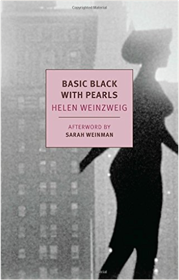 Shirley and Coenraad’s affair has been going on for decades, but her longing for him is as desperate as ever. She is a Toronto housewife; he works for an international organization known only as the Agency. Their rendezvous take place in Tangier, in Hong Kong, in Rome and are arranged by an intricate code based on notes slipped into issues of National Geographic. He recognizes her by her costume: a respectable black dress and string of pearls; his appearance, however, is changeable. But something has happened, the code has been discovered, and Coenraad sends Shirley (who prefers to be known as “Lola Montez”) to Toronto, the last place she wants to go. There the trail leads her through the sites of her impoverished immigrant childhood and sends her, finally, to her own house, where she discards her pearls and trades in her basic black for a dress of vibrant multicolored silk. Helen Weinzweig published her first novel when she was fifty-eight. Basic Black with Pearls, her second, won the Toronto Book Award and has since come to be recognized as a feminist landmark. Here Weinzweig imbues the formal inventiveness of the nouveau roman with psychological poignancy and surprising humor to tell a story of simultaneous dissolution and discovery. Beware of Pity 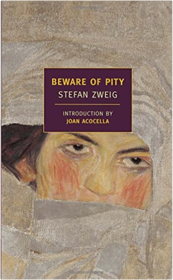 "Stefan Zweig was a dark and unorthodox artist; it's good to have him back."—Salman Rushdie The great Austrian writer Stefan Zweig was a master anatomist of the deceitful heart, and Beware of Pity, the only novel he published during his lifetime, uncovers the seed of selfishness within even the finest of feelings. Hofmiller, an Austro-Hungarian cavalry officer stationed at the edge of the empire, is invited to a party at the home of a rich local landowner, a world away from the dreary routine of the barracks. The surroundings are glamorous, wine flows freely, and the exhilarated young Hofmiller asks his host's lovely daughter for a dance, only to discover that sickness has left her painfully crippled. It is a minor blunder that will destroy his life, as pity and guilt gradually implicate him in a well-meaning but tragically wrongheaded plot to restore the unhappy invalid to health. Chess Story 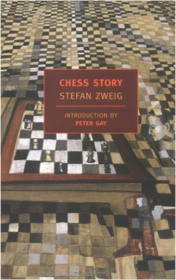 Travelers sailing from New York to Buenos Aires find that on board with them is the world champion of chess. He is, as they soon discover, an arrogant and unfriendly man. They gather together to try their skills against him and are soundly defeated. Then a mysterious passenger steps forward to advise them and their fortunes change. How he came to possess his extraordinary grasp of the game of chess and at what cost lie at the heart of Zweig’s story, which is also a meditation on the burden of memory and the ways in which resistance and vulnerability are entwined in the human spirit. The Collected Novellas of Stefan Zweig: Burning Secret, A Chess Story, Fear, Confusion, Journey into the Past 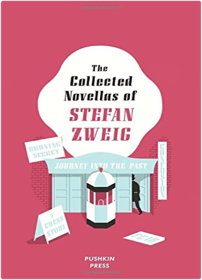 To read anything by Zweig is to risk addiction; in this collection the power of his writing—which, with its unabashed intensity and narrative drive, made him one of the bestselling and most acclaimed authors in the world—is clear and irresistible. Each of these stories is a bolt of experience, unforgettable and unique. Five of Stefan Zweig's most powerful novellas, containing some of his most famous and best-loved work: • Burning Secret • A Chess Story • Fear • Confusion • Journey into the Past (Stand alone paperback editions of individual novellas from Pushkin and New York Review of Books will remain in print.) The Collected Stories of Stefan Zweig 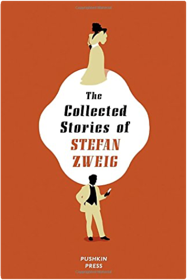 Deluxe, clothbound edition. The Post-Office Girl 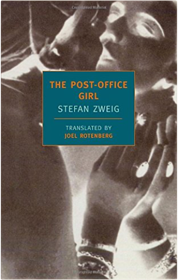 The post-office girl is Christine, who looks after her ailing mother and toils in a provincial Austrian post office in the years just after the Great War. One afternoon, as she is dozing among the official forms and stamps, a telegraph arrives addressed to her. It is from her rich aunt, who lives in America and writes requesting that Christine join her and her husband in a Swiss Alpine resort. After a dizzying train ride, Christine finds herself at the top of the world, enjoying a life of privilege that she had never imagined. But Christine’s aunt drops her as abruptly as she picked her up, and soon the young woman is back at the provincial post office, consumed with disappointment and bitterness. Then she meets Ferdinand, a wounded but eloquent war veteran who is able to give voice to the disaffection of his generation. Christine’s and Ferdinand’s lives spiral downward, before Ferdinand comes up with a plan which will be either their salvation or their doom. Never before published in English, this extraordinary book is an unexpected and haunting foray into noir fiction by one of the masters of the psychological novel. |


Delicious Library
Collection Total:
3,640 Items
3,640 Items
Last Updated:
Nov 2, 2025
Nov 2, 2025
 Made with Delicious Library
Made with Delicious Library